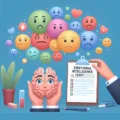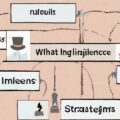The Foundation of a Fulfilling Life: Essential Skills for Everyone
Life is a journey of continuous learning and growth. As we navigate through its twists and turns, certain skills prove invaluable in helping us lead more fulfilling, balanced, and meaningful lives. These important life skills aren’t just about career success or financial stability – they’re about nurturing our overall wellbeing, fostering compassion, and creating positive relationships with ourselves and others. Let’s explore some of the most crucial life skills that can transform our daily experiences and long-term happiness.
Emotional Intelligence: The Heart of Human Connection
At the core of many essential life skills lies emotional intelligence – the ability to recognize, understand, and manage our own emotions while also empathizing with others. This skill is fundamental to building strong relationships, resolving conflicts, and maintaining mental health.
Developing emotional intelligence involves:
- Practicing self-awareness and reflection
- Learning to regulate your emotions in healthy ways
- Cultivating empathy and compassion for others
- Improving your ability to communicate feelings effectively
By honing your emotional intelligence, you’ll find yourself better equipped to navigate social situations, form deeper connections, and respond to life’s challenges with grace and understanding.
Effective Communication: Bridging Gaps and Building Bonds
Clear and compassionate communication is the bridge that connects us to others. It’s not just about speaking articulately; it’s about listening actively, expressing yourself authentically, and fostering mutual understanding.
Key aspects of effective communication include:
- Active listening – truly hearing and understanding others
- Nonviolent communication – expressing needs without blame or criticism
- Body language awareness – understanding and using nonverbal cues
- Adaptability – tailoring your communication style to different situations
By improving your communication skills, you’ll enhance your personal and professional relationships, resolve conflicts more easily, and create a more harmonious environment around you.
Resilience: Bouncing Back from Life’s Challenges
Life inevitably brings obstacles and setbacks. Resilience is the ability to adapt to adversity, bounce back from difficulties, and even grow stronger through challenges. It’s not about avoiding pain or hardship, but about developing the inner strength to persevere and find meaning in our struggles.
To build resilience:
- Cultivate a growth mindset – see challenges as opportunities for learning
- Practice self-compassion – be kind to yourself during tough times
- Build a support network – connect with others who uplift and encourage you
- Develop problem-solving skills – approach obstacles with creativity and flexibility
By strengthening your resilience, you’ll be better prepared to face life’s ups and downs with courage and optimism.
Mindfulness and Self-Care: Nurturing Your Inner World
In our fast-paced world, the ability to slow down, be present, and care for ourselves is more crucial than ever. Mindfulness and self-care practices help us manage stress, improve mental health, and cultivate a deeper sense of wellbeing.
Incorporate these practices into your life:
- Daily meditation or mindfulness exercises
- Regular physical activity that you enjoy
- Healthy sleep habits and nutrition
- Engaging in hobbies and activities that bring you joy
- Setting boundaries to protect your energy and time
By prioritizing mindfulness and self-care, you’ll create a strong foundation for overall health and happiness.
Empathy and Compassion: Connecting with Humanity
In an increasingly divided world, the skills of empathy and compassion are more important than ever. These qualities allow us to connect deeply with others, bridge differences, and contribute to a more caring society.
To cultivate empathy and compassion:
- Practice perspective-taking – try to see situations from others’ points of view
- Engage in acts of kindness – both small and large
- Learn about different cultures and experiences
- Volunteer or contribute to causes you care about
By developing these skills, you’ll not only enrich your own life but also make a positive impact on the world around you.
Frequently Asked Questions
Q1: How long does it take to develop these life skills?
A1: Developing life skills is an ongoing process that continues throughout our lives. While you can start seeing improvements in weeks or months with consistent practice, truly mastering these skills is a lifelong journey of growth and learning.
Q2: Can these skills be learned at any age?
A2: Absolutely! It’s never too early or too late to start developing important life skills. Our brains remain plastic throughout our lives, allowing us to learn and grow at any age. The key is to approach learning with an open mind and patience.
Q3: How can I practice these skills in my daily life?
A3: Start by setting small, achievable goals for each skill. For example, practice active listening in one conversation each day, or set aside 5 minutes for mindfulness. Gradually increase your practice as it becomes more comfortable. Remember, consistency is more important than perfection.
Q4: Are there any resources to help develop these skills?
A4: Yes, there are many resources available. Books, online courses, workshops, and therapy or coaching can all be helpful. Additionally, many smartphone apps offer guided exercises for skills like mindfulness and emotional intelligence.
Q5: How do these skills contribute to overall wellbeing?
A5: These life skills form the foundation of emotional and mental wellbeing. They help us build stronger relationships, manage stress more effectively, and find greater meaning and purpose in life. By improving these skills, we enhance our overall quality of life and resilience in facing life’s challenges.
In conclusion, developing these important life skills is a journey of self-discovery and growth that can profoundly impact our lives and the lives of those around us. By cultivating emotional intelligence, effective communication, resilience, mindfulness, and compassion, we equip ourselves with the tools to navigate life’s complexities with grace and create a more fulfilling, connected existence. Remember, the path to mastering these skills is ongoing – embrace the journey with patience, self-compassion, and an open heart.









